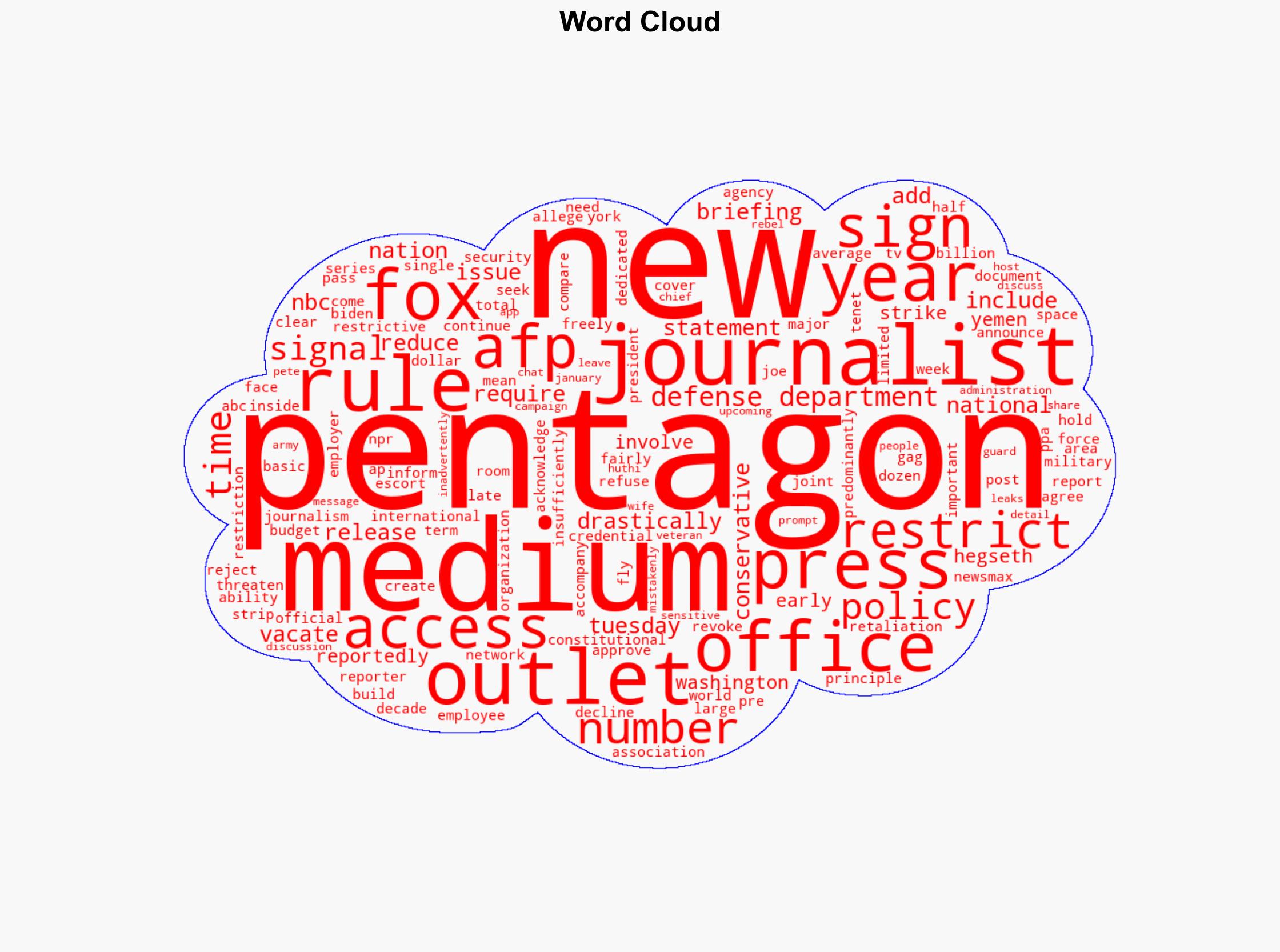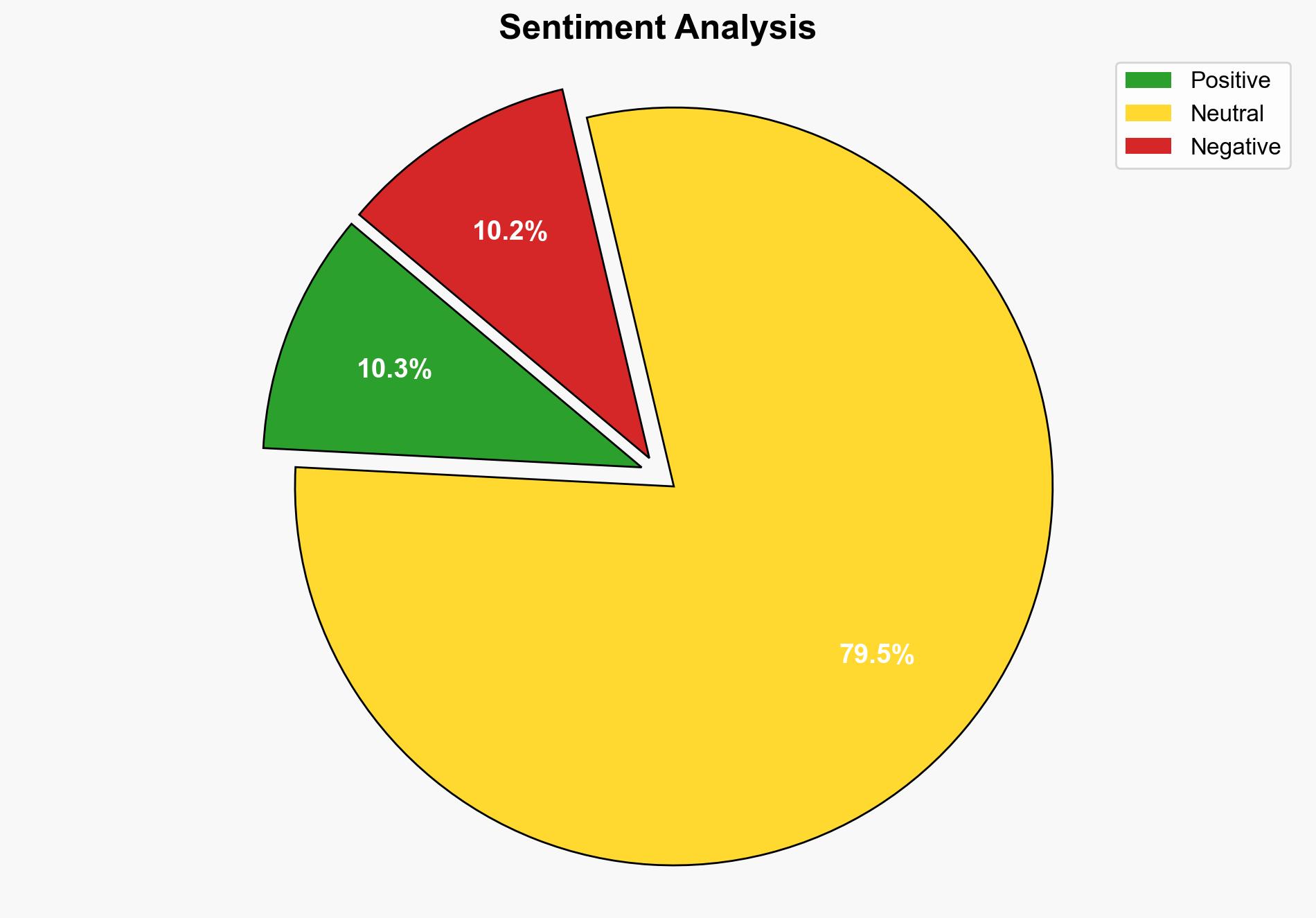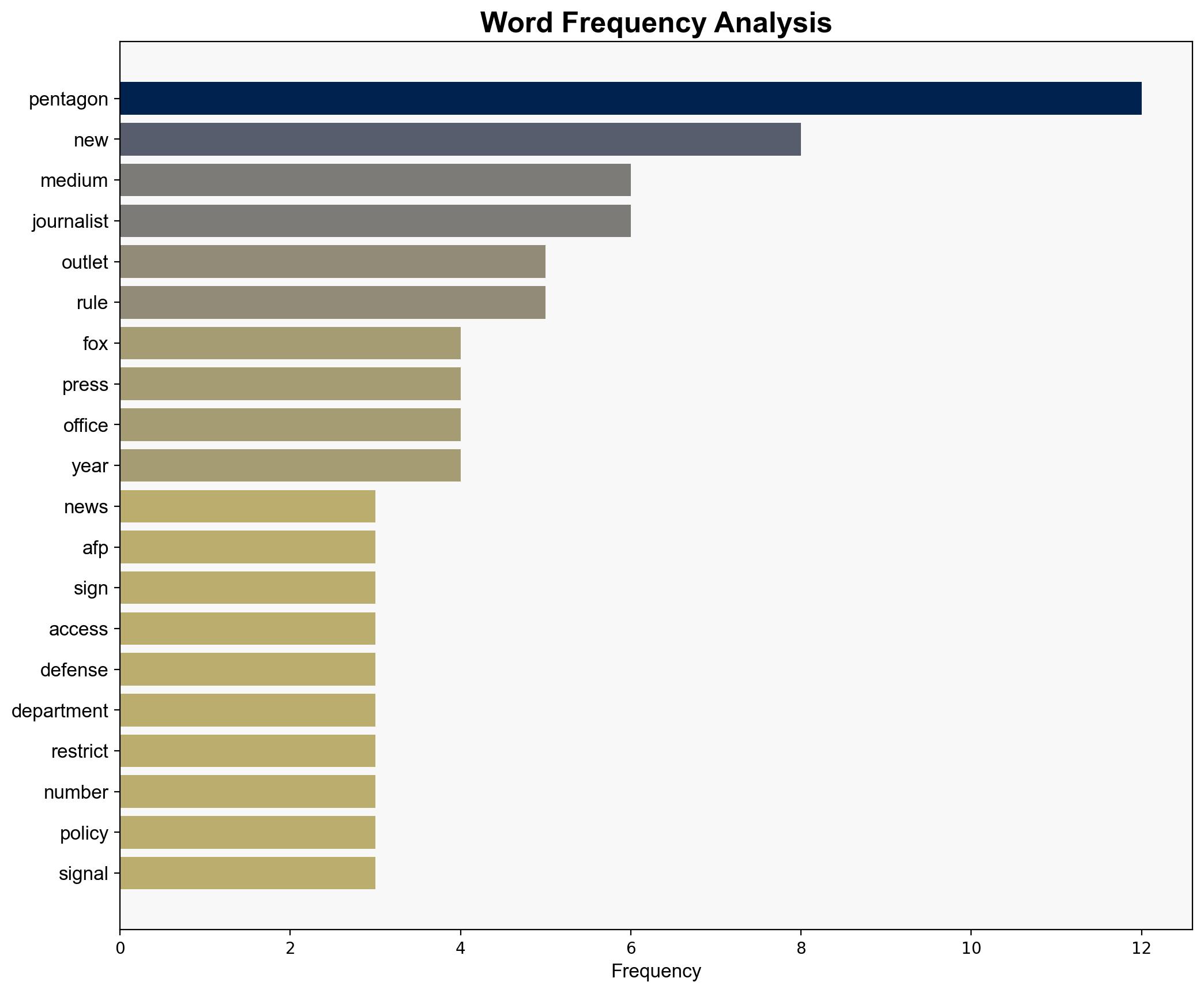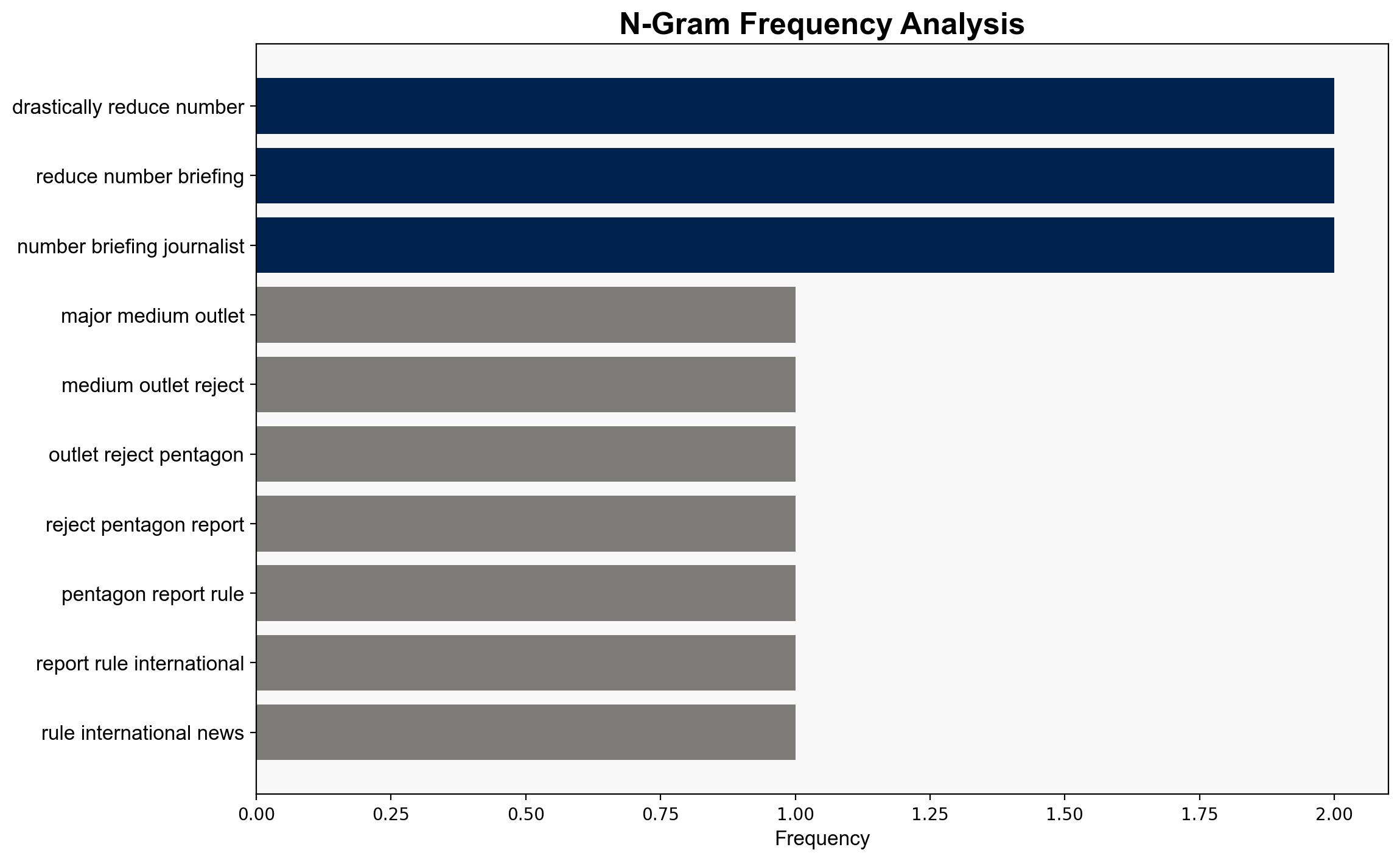Major Media Outlets Reject Pentagon Reporting Rules – International Business Times
Published on: 2025-10-15
Intelligence Report: Major Media Outlets Reject Pentagon Reporting Rules – International Business Times
1. BLUF (Bottom Line Up Front)
The rejection of new Pentagon reporting rules by major media outlets suggests a significant conflict between press freedom and national security measures. The most supported hypothesis is that the Pentagon’s rules are primarily aimed at controlling information flow to prevent leaks, rather than solely enhancing security. Confidence level: Moderate. Recommended action: Engage in dialogue with media organizations to find a balanced approach that ensures both national security and press freedom.
2. Competing Hypotheses
1. **Hypothesis A**: The Pentagon’s new rules are primarily intended to enhance national security by preventing leaks of sensitive information.
2. **Hypothesis B**: The rules are primarily a strategic move to control the narrative and limit media scrutiny of the Pentagon’s activities.
Using Analysis of Competing Hypotheses (ACH), Hypothesis B is better supported. The broad rejection by diverse media outlets and the historical context of press freedom challenges suggest a pattern of narrative control rather than purely security-driven motives.
3. Key Assumptions and Red Flags
– **Assumptions**:
– Hypothesis A assumes that leaks pose a significant threat that justifies restrictive measures.
– Hypothesis B assumes a deliberate effort to control media narratives.
– **Red Flags**:
– Lack of clarity in the new rules raises questions about their true intent.
– The absence of a clear, public rationale for the restrictions suggests possible ulterior motives.
– **Blind Spots**:
– Potential internal dissent within the Pentagon regarding these measures is not addressed.
4. Implications and Strategic Risks
– **Implications**:
– Erosion of trust between the media and the Pentagon could lead to less informed public discourse on national security.
– Potential chilling effect on investigative journalism related to defense matters.
– **Strategic Risks**:
– Escalation of tensions between the government and media could lead to legal challenges and public protests.
– International perception of U.S. commitment to press freedom may be negatively impacted.
5. Recommendations and Outlook
- Initiate a transparent review of the new rules with input from media representatives to address concerns and enhance mutual understanding.
- Scenario-based projections:
- Best Case: A revised policy that balances security needs with press freedom, restoring trust.
- Worst Case: Legal battles and international criticism damage the U.S.’s reputation.
- Most Likely: Continued media resistance and potential policy adjustments under public pressure.
6. Key Individuals and Entities
– Pete Hegseth
– Media organizations: New York Times, Associated Press, Agence France-Presse, Fox News
– Pentagon Press Association
7. Thematic Tags
national security threats, cybersecurity, counter-terrorism, regional focus




